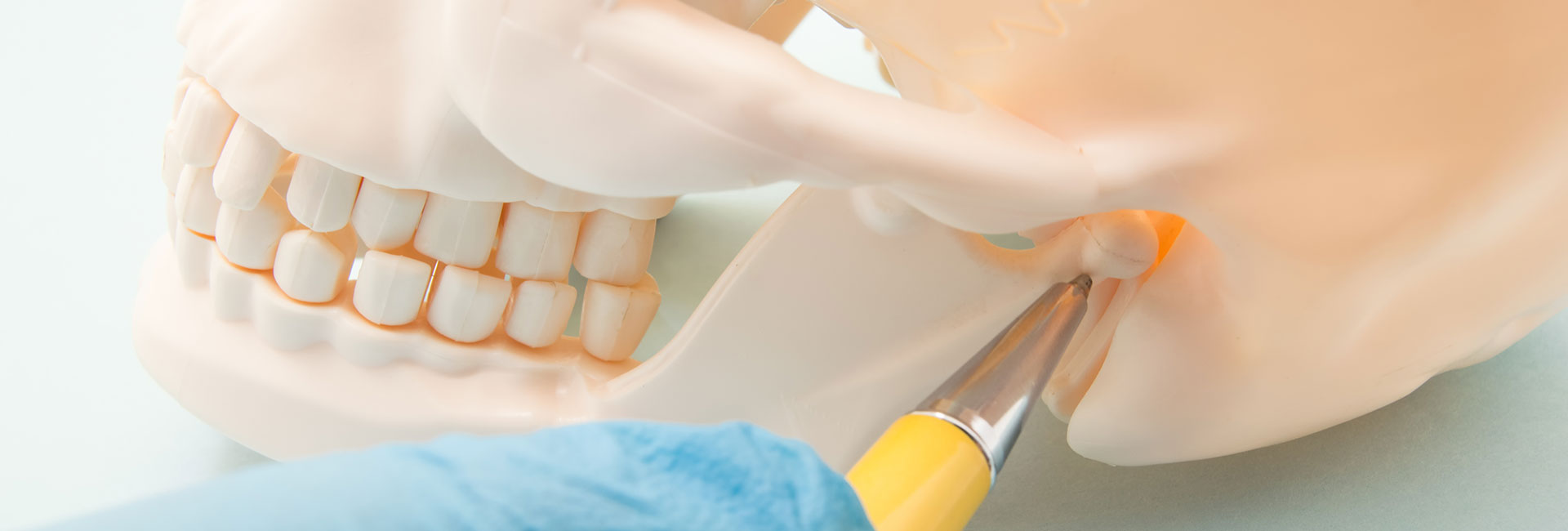Expertise that transcends a “pretty smile,” providing lasting relief from the pain and symptoms of TMJ disorder
Looking for relief from chronic headaches and radiating jaw, neck, shoulder, and back pain? Look no further than Intentional Smiles and our exceptional team in Edmond, Oklahoma! Our dental office, led by Dr. Taylor Barton, is your destination for lasting and real resolution of the symptoms of temporomandibular joint dysfunction or disorders, known as TMJDs.
We are adept in diagnosing, treating, and managing TMJ symptoms due to our vast knowledge of oral and maxillofacial anatomy and function. Our team is also supported by advanced technologies to better pinpoint the source or factors at the root of disordered TMJs. These joints connect the jaw to the skull. They function as hinges to facilitate jaw movements. TMJDs describe a collection of symptoms and conditions associated with the joints and the other interconnected “parts” that add up to the “whole” jaw or face.
In addition to the symptoms mentioned above, TMJDs may manifest as:
- Lockjaw, or impaired movement of the jaws
- Sounds such as clicks or pops when opening and closing the mouth
- Bruxism (habitual clenching of the jaws and grinding of the teeth)
- Premature breakdown of dental restorations, as well as natural teeth
- Bite imbalances, problems with how the opposing teeth in the upper and lower jaws make contact with each other when the mouth is closed
- Earaches and tinnitus
The severity and frequency of symptoms vary from individual to individual. Furthermore, it is not uncommon for the same patient to experience more debilitating pain over time without proper intervention. Episodes of emotional distress or traumatic events are also thought to worsen TMJ symptoms because they cause the associated muscles to tighten. So, stress can truly “stress” the joints and surrounding tissues. Other conditions linked to TMJDs include arthritis, trauma, injuries, and certain behaviors and habits (see “bruxism” above).
Treatment is often multi-faceted and may include exercises and physical therapy to ease or strengthen the muscles associated with TMJDs. Relief may even come in the form of an oral appliance worn to soften the blow generated when patients chronically grind their teeth. With these lightweight devices, we also protect your teeth and restorations from further damage. Dr. Barton may support a more balanced bite and the relationship between the teeth and jaws by repairing or replacing dental restorations. So, this intervention, too, can improve the frequency and severity of jaw stiffness, pain, and other TMJD-related signs.
We could go on and on about the many therapeutic options available to modern dental professionals like Dr. Barton. However, we encourage you to get one step closer to real pain relief and relief from pain medications that only temporarily ease symptoms by contacting us! Intentional Smiles can be reached at (405) 348-2266.


